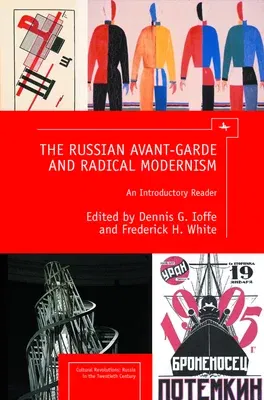The Russian Avant-Garde and Radical Modernism: An Introductory ReaderPaperback, 1 October 2012

Qty
1
Turbo
Ships in 2 - 3 days
In Stock
Free Delivery
Cash on Delivery
15 Days
Free Returns
Secure Checkout

Part of Series
Cultural Syllabus
Print Length
350 pages
Language
English
Publisher
Academic Studies Press
Date Published
1 Oct 2012
ISBN-10
1936235455
ISBN-13
9781936235452
Description
Product Details
Book Format:
Paperback
Country of Origin:
US
Date Published:
1 October 2012
Dimensions:
23.39 x
15.6 x
2.49 cm
ISBN-10:
1936235455
ISBN-13:
9781936235452
Language:
English
Location:
Boston, MA
Pages:
350
Publisher:
Series:
Weight:
675.85 gm